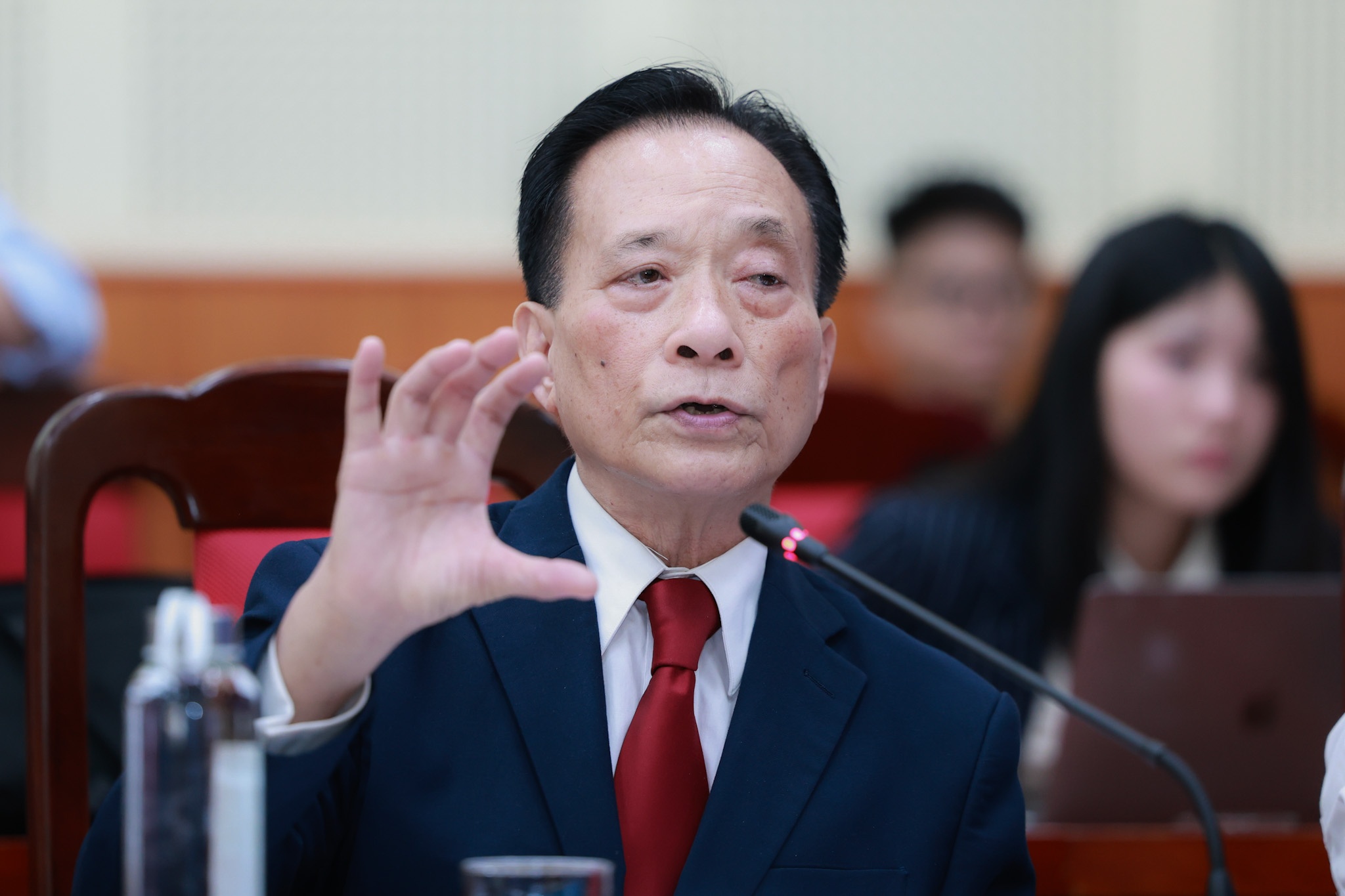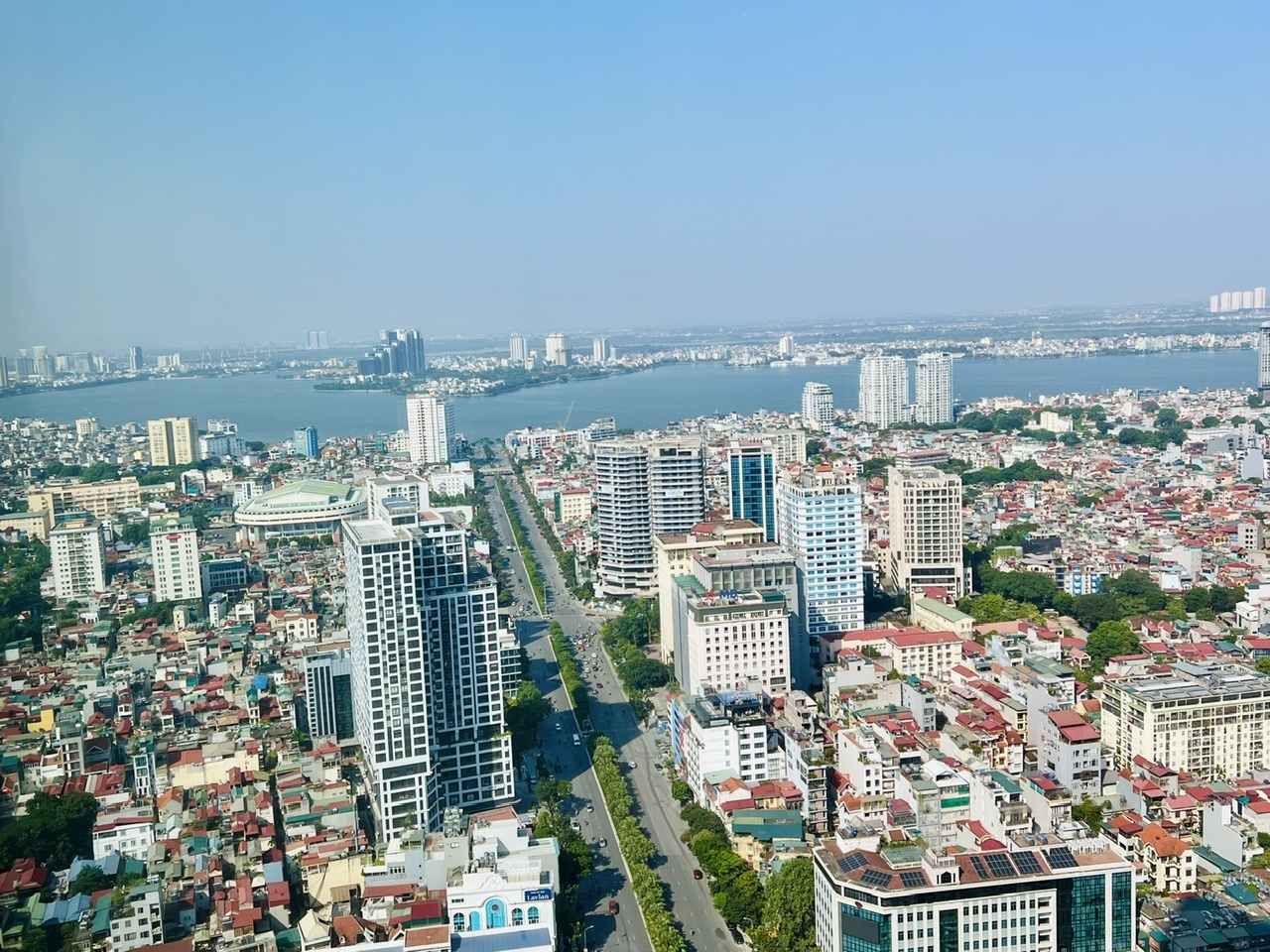 |
| TS. Nguyễn Trí Hiếu |
Ông đánh giá như thế nào về thuế bất động sản tại Việt Nam?
Thuế bất động sản được xem là công cụ hữu hiệu để kiểm soát đầu cơ, tạo nguồn thu ổn định cho ngân sách và hướng dòng vốn vào các hoạt động kinh tế thay vì tích trữ tài sản.
Các quốc gia phát triển như Mỹ, Canada, Nhật Bản hay Hàn Quốc đều áp dụng thuế tài sản thường niên, tính trên giá trị bất động sản, nhằm đảm bảo tính công bằng trong phân phối tài sản và tạo nguồn thu bền vững cho ngân sách nhà nước.
Tại Việt Nam, hiện thuế bất động sản mới chỉ dừng lại ở các khoản thu như thuế sử dụng đất phi nông nghiệp, thuế thu nhập cá nhân từ chuyển nhượng bất động sản và lệ phí trước bạ. Từ kinh nghiệm quốc tế, có thể thấy Việt Nam chưa áp dụng thuế bất động sản một cách hiệu quả.
Áp dụng thuế bất động sản chưa hiệu quả ảnh hưởng như thế nào đến quá trình phát triển kinh tế - xã hội của đất nước?
Bất động sản là một trong những lĩnh vực đầu tư có mức lợi nhuận cao. Việc chưa áp dụng thuế bất động sản một cách hiệu quả tại Việt Nam đã dẫn đến một số hệ lụy đáng chú ý. Dễ thấy nhất là tình trạng đầu cơ và tích trữ bất động sản gia tăng. Bởi khi không phải chịu áp lực thuế, nhiều cá nhân và tổ chức có xu hướng đầu tư bất động sản để nắm giữ lâu dài thay vì khai thác sử dụng hoặc đưa vào giao dịch. Điều này góp phần làm suy giảm nguồn cung nhà ở phục vụ nhu cầu ở thực, khiến giá bất động sản tăng cao.
Bên cạnh đó, ngân sách nhà nước bị "bỏ lỡ" một nguồn thu quan trọng. Bởi khi bất động sản không bị đánh thuế tài sản thường xuyên, nhà nước mất đi một nguồn thu ổn định, lâu dài, trong khi phải phụ thuộc nhiều vào thuế thu nhập doanh nghiệp và thuế giá trị gia tăng (VAT). Điều này khiến hệ thống thuế chưa phát huy được hiệu quả trong việc điều tiết nền kinh tế.
 |
| Đánh thuế bất động sản thứ hai là hợp lý để đảm bảo công bằng cho xã hội |
Hiện đang có đề xuất đánh thuế bất động sản thứ hai để hóa giải những bất cập trên. Ông đánh giá như thế nào về giải pháp này?
Đánh thuế bất động sản thứ hai là hợp lý nhằm đảm bảo công bằng cho xã hội cũng như tăng nguồn thu thuế cho quốc gia, giảm thiểu rủi ro cho nền kinh tế
Hiện nay, công dân Mỹ phải chịu thuế trên căn nhà thứ nhất. Cơ quan thuế sẽ dùng giá trị lúc mua bất động sản để đánh thuế. Mỗi năm, cơ quan thuế có thể sẽ trở lại kiểm tra giá trị đánh thuế trên cơ sở đó. Tuy nhiên, đó là thuế địa phương chứ không phải thuế tiểu bang hay liên bang. Thuế suất đó sẽ vào khoảng 1-3%/giá trị bất động sản. Căn nhà thứ nhất nếu dùng để ở vẫn phải đóng thuế. Tuy nhiên, tiền lãi trả cho ngân hàng khi vay bất động sản được khấu trừ vào trong thu nhập không chịu thuế.
Đối với bất động sản thứ 2 trở lên đều phải chịu thuế bình thường, không có ưu đãi. Thuế bất động sản được áp dụng hàng năm dựa trên giá trị thị trường của tài sản. Nếu giá trị bất động sản tăng, mức thuế cũng được điều chỉnh theo. Đây là một cơ chế linh hoạt, phản ánh đúng giá trị thực tế của tài sản theo thời gian.
Do đó, ở Việt Nam, việc đánh thuế bất động sản thứ nhất có thể xem xét vì chúng ta đang khuyến khích người dân an cư lạc nghiệp. Từ căn nhà thứ hai thì nên đánh thuế vì những người có căn nhà thứ hai thường là người có thu nhập cao, đánh thuế sẽ tạo ra công bằng xã hội, đồng thời sẽ tránh được tình trạng đầu cơ. Tuy nhiên, việc triển khai cần có sự cân nhắc kỹ lưỡng để đảm bảo phù hợp với thực tiễn thị trường và điều kiện kinh tế - xã hội tại từng thời điểm.
Cần có giải pháp gì để quản lý thuế bất động sản đảm bảo tính công bằng nhưng vẫn tránh tạo ra những tác động ngoài mong muốn?
Việc đánh thuế tài sản không chỉ đặt ra yêu cầu về tính công bằng trong hệ thống thuế, mà còn cần một lộ trình hợp lý nhằm tránh tạo ra những tác động ngoài mong muốn, đặc biệt trong bối cảnh thị trường đang cần sự ổn định.
Thứ nhất, Chính phủ có thể thực hiện cải cách thuế bất động sản theo hướng đánh thuế lũy tiến đối với bất động sản thứ hai trở lên nhằm hạn chế đầu cơ nhưng vẫn đảm bảo những người có nhu cầu ở thực không bị ảnh hưởng.
Thứ hai, miễn hoặc giảm thuế đối với nhà ở xã hội, nhà ở dành cho người thu nhập thấp nhằm đảm bảo quyền tiếp cận nhà ở của nhóm dân cư này.
Thứ ba, phân quyền thu thuế cho chính quyền địa phương, tương tự mô hình của nhiều nước phát triển, giúp các địa phương có thêm nguồn thu để phát triển cơ sở hạ tầng và dịch vụ công.
Tóm lại, thuế bất động sản là một công cụ quan trọng để điều tiết thị trường, hạn chế đầu cơ, tăng nguồn thu ngân sách. Tuy nhiên, việc triển khai cần được thực hiện theo lộ trình phù hợp, đảm bảo sự ổn định cho thị trường bất động sản, đồng thời không gây xáo trộn quá lớn đến tâm lý nhà đầu tư cũng như khả năng tiếp cận nhà ở của người dân.
Nguồn: https://thoibaonganhang.vn/ap-thue-bat-dong-san-can-dam-bao-cong-bang-va-lo-trinh-hop-ly-161496.html







































Comment (0)